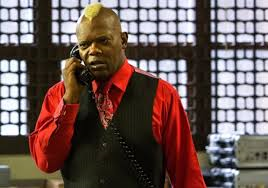By Armond White
As a filmmaker, professor and community leader, Spike Lee sends a rotten message to audiences, students, parents, etc. in Oldboy, his remake of Park Chan Wook’s 2003 horror fantasy. It’s the story of a man held prisoner in a charnel house/hotel then released, seeking ironic revenge for the destruction of his life and family. Slavery or Prison Industrial Complex metaphor? Nah, just debauchery.
 To retail (and re-tell) a story this unedifying exposes Spike Lee’s filmmaking motives. Not exactly a heartwarming tale, Oldboy is consistent with Lee’s typically sour presentation of New York attitude. What’s usually mistaken for gritty-realism in Lee’s work can now be seen as just his peculiarly rancorous, divisive unwholesome sensibility.
To retail (and re-tell) a story this unedifying exposes Spike Lee’s filmmaking motives. Not exactly a heartwarming tale, Oldboy is consistent with Lee’s typically sour presentation of New York attitude. What’s usually mistaken for gritty-realism in Lee’s work can now be seen as just his peculiarly rancorous, divisive unwholesome sensibility.
The protagonist, Joe Doucette (James Brolin in thug mode) begins the film as a drunken asshole ad exec whose character arc leaves him a sober asshole ad ex–still pugnacious, single-minded, dangerous. The thin difference resembles out-of-context MLK and Malcolm X quotes that closed Do the Right Thing–Lee gives audiences no definite humane choice. His nihilistic approach is not far from Park Chan Wook’s, it’s just less stylish, lacking Park’s perversely cruel cinematic poetry. Lee’s incoherent style-hopping (surreal segments mixed with naturalism, hyperbolic color mixed with neo-noir grunge) is part of his undisciplined, unprincipled opportunism.
Like the British filmmaker Steve McQueen, Lee is pledged to hipster art world cynicism, the liberal-academic-bohemian attitude that encourages Black artists’ commercialized rebellion–selling transgression, anarchy and anti-authoritarianism in the guise of Black political opposition and cultural privilege. Lee didn’t need to remake Oldboy as a Black man’s story because that phony rebellion is now cultural fashion–that’s why so many white hipsters embraced Lee’s fatuous The 25th Hour; it remade Do the Right Thing for wiggers.
Never a deep thinker, Lee thinks in Madison Ave. codes, updating trendy slang, graphics and fashion. The drug-addict girl (played by Elizabeth Olson) who helps Doucette looks the part, mainly due to Lee’s antennae for current American street style which more effectively translates Park’s sadistic universe than Park could in his American debut Stoker. Lee’s cultural knack is like a shallow rapper’s–style & rhythm-minus-substance, violence without meaning or purpose. (Park’s famous one-man-army battle scene here looks like a savage but literal version of the Beat It music video–banalizing Park’s stupid “poetry.”) Lee appropriates Park’s decadence as a convenient, if cynical way of confirming his status behind Woody Allen and Martin Scorsese as New York’s nastiest son.
Oldboy’s ludicrous plot resolution (replete with ultra-decadent white villain played campily by Sharlto Copley) is no less spiteful and repugnant than Red Hook Summer; it simply summarizes Lee’s glib, ugly view of the world–but in an opportunistic way that buys into Hollywood’s cynical commercialism. This is confirmed by Lee’s payday reunion with Samuel L. Jackson (their first film together in 22 years) as the charnel house proprietor. Wearing a blond Mohawk, SamJack spews juvenile profanities: “You booger-eating, piss-drinking MuthaFucka!” and “You no-dick, MuthaFucka, I swear before god and eight MuthaFuckin’ white people!” (The swear used to be “12 white people” as in a jury.)
As SamJack’s climactic profanity, he greedy insists: “Reparations must be made!” This is the lesson Spike Lee gives his fans and students: Abuse filmmaking opportunities and the sensitivities of the movie going public by any means necessary–as long as you get paid.
Follow Armond White on Twitter at 3xchair
